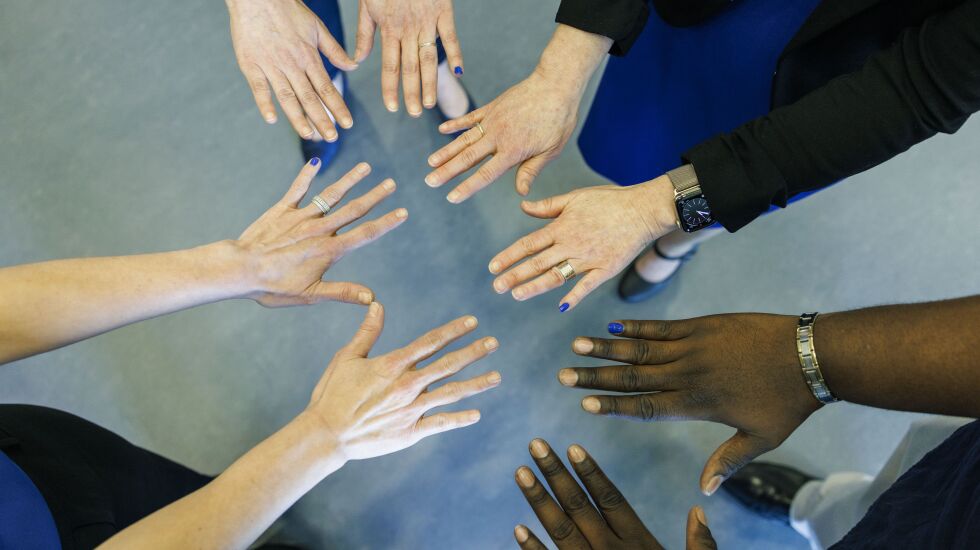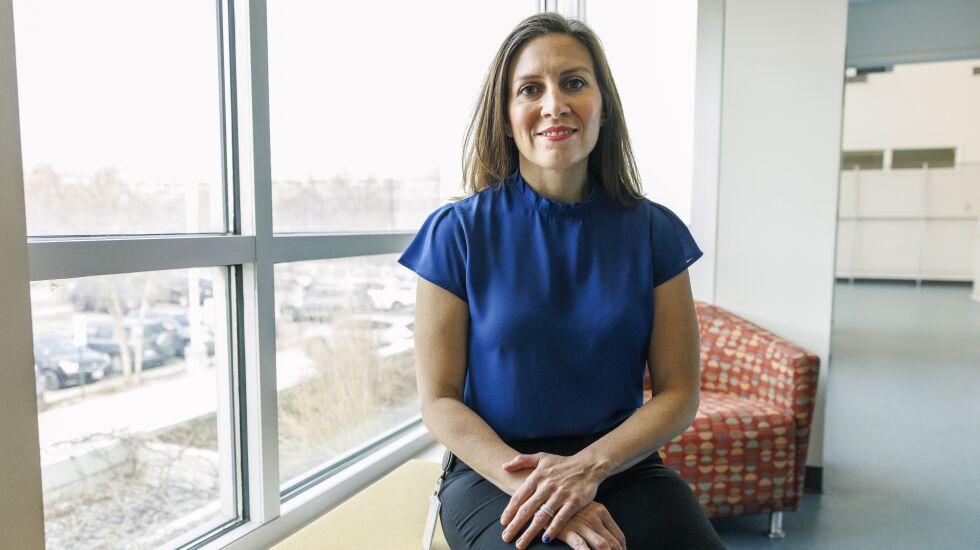
In April, Kristin Schmidt and her co-workers each paint a fingernail blue. It’s not a fashion statement, but a message about a troubling statistic — that 1 in 10 children experience abuse.
It’s something Schmidt and her colleagues at Chicago Children’s Advocacy Center work to combat every day, and it’s why the federal government is giving the nonprofit organization $1 million to expand its services.
“Until we can break that cycle of abuse that happens generation to generation, we need to be here and we’re going to need to grow,” said Schmidt, the center’s director of development.
The center provides a space for victims of abuse to connect with law enforcement and receive mental health treatment. Since 2001, it has handled tens of thousands of cases at its location in the Illinois Medical District, but lately it has hit capacity and many victims have to wait to receive mental health care.
The federal funds, earmarked for the center by Illinois Sens. Dick Durbin and Tammy Duckworth, will allow the organization to cut down its wait times by building new private offices inside the center.

“If we are going to bring peace to our neighborhoods, we have to bring peace to our families,” Durbin said at a news conference at the center on Thursday.
The trauma of abuse negatively impacts the future of victims and their families, he said, and it’s vital to have spaces for providers “to sit down with children and their parents and give them a brighter outlook for the future.”
Leaders from the center said they plan to use the funds by the end of the summer to construct the offices and will use what’s left over to prepare for the construction of an adjacent building.
The center received around 2,000 cases of abuse last year, according to an internal report. The vast majority of cases were for sexual abuse but also included cases of physical abuse and trafficking.
Rhiannon Reaves, director of clinical services for the center, said the number of those coming in requesting mental health services has grown greatly since the pandemic, while the share of cases considered severe based on symptoms and other risk factors has grown.
There are 257 children currently on the waitlist, she said, and the average wait time has grown to 86 days. About 33% of cases are considered severe, up 10% from before the pandemic.
The renovations will add seven treatment rooms, allowing the center to see around 70 additional patients.
Reaves said the new offices will help in the short term, but she is looking forward to the new building the center hopes to begin construction on next year, where it will have even more space for families to come in together.
“The families are coming from intergenerational trauma and this is a chance to stop that cycle. It can transform that family,” Reaves said.

Char Rivette, CEO of the center, said the new building is expected to be about 50,000 square feet and will be connected to the current 42,000-square-foot space the organization operates out of today.
The expected cost is $40 million, she said, and the center already has secured funding from the state and federal governments, and, most recently, a $5 million commitment from the city.
The center is known for housing a Chicago Police Department special investigations unit with 40 detectives, Rivette said. But not all cases lead to arrests, she said, and she’s looking forward to being able to provide additional services for victims in the new space.
“We’re going to be there no matter what,” she said. “We can do so much great work, beyond the criminal justice response alone.”
Michael Loria is a staff reporter at the Chicago Sun-Times via Report for America, a not-for-profit journalism program that aims to bolster the paper’s coverage of communities on the South Side and West Side.








